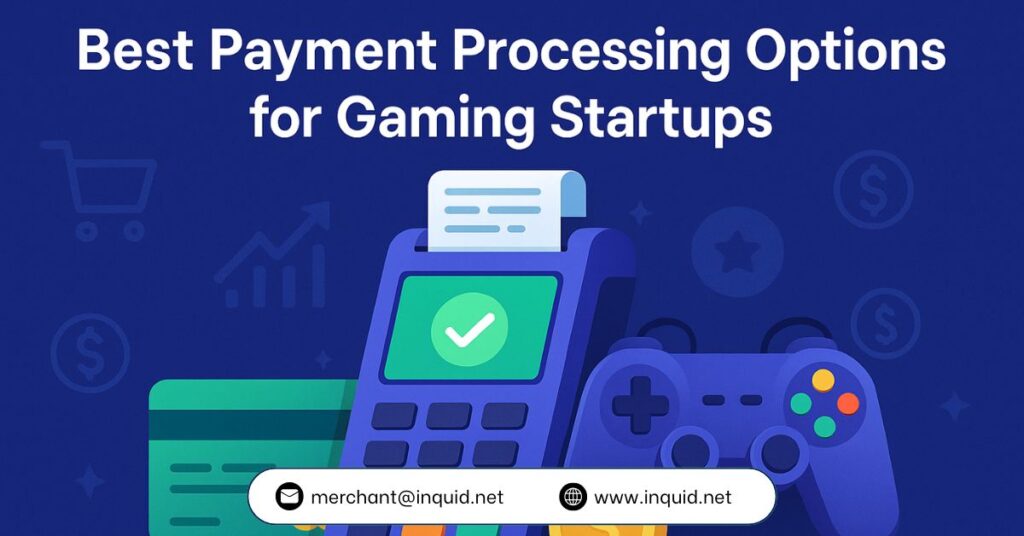
Gaming startups have surged in recent years, driven by mobile gaming, online casinos, esports platforms, and fantasy leagues. But with this growth comes a major challenge—handling payments efficiently while staying compliant, secure, and profitable. Unlike typical e-commerce businesses, gaming platforms face more scrutiny and higher risk ratings from banks and processors. That makes selecting the right payment processing option not just a technical decision but a strategic one.
Whether you’re offering in-game purchases, subscription models, or pay-to-play services, the way you accept and manage payments can influence your success more than you think.
Why Gaming Startups Are Considered High-Risk
Gaming businesses, especially those dealing with real money transactions, often fall into the high-risk category. Chargebacks, age restrictions, regulatory concerns, and fraud risk all contribute to this label. Since mainstream processors tend to avoid high-risk merchants, finding the best payment processing for gaming startups becomes a priority for those looking to operate without constant setbacks.
If your platform accepts payments from users in different countries or deals with virtual currencies, the complexity only increases. That’s why having access to specialized processors is important for maintaining uptime, avoiding account freezes, and keeping transaction fees under control.
Key Features to Look for in a Payment Processor
Not every provider is built to support the fast-paced needs of gaming. Here’s what gaming startups should look for when evaluating their options:
- Multi-currency support: Accepting payments globally should be friction-free, especially for games that attract international users.
- High-risk merchant account compatibility: You’ll need a processor that doesn’t back out once they learn about your industry.
- Recurring billing options: If you offer subscriptions, you’ll want a system that can handle repeat payments smoothly.
- Fast settlement cycles: Cash flow is critical, especially during the early stages of growth.
- Chargeback management tools: Gaming platforms often deal with disputes—having built-in tools helps avoid revenue loss.
Top Payment Processing Options for Gaming Startups
Here are some of the most reliable options available for new gaming businesses trying to accept payments effectively:
1. inquid
inquid offers dedicated solutions for high-risk industries, including gaming, dating, and adult services. It supports a wide range of currencies and payment methods, including credit cards, wallets, and localized options.
What sets inquid apart is its support for high-risk payment processing, making it a strong fit for startups facing banking rejections. It also provides fast settlements and personalized onboarding to help new platforms go live quickly.
2. Direct Acquirers with High-Risk Experience
Instead of using traditional gateways, some startups prefer working directly with acquirers that specialize in high-risk merchants. These providers often offer lower transaction fees over time and are more flexible in setting transaction limits. However, they may require higher documentation standards and longer onboarding periods.
3. Aggregators like Stripe or PayPal (with Caution)
While Stripe and PayPal are household names, they often flag gaming businesses as high-risk and may suspend accounts without prior notice. That’s why startups need to weigh the short-term ease of setup against the potential risk of disruption. For those seeking the best payment processing for gaming startups, these platforms are often better suited for game-related tools or communities rather than pay-to-play or betting sites.
4. Crypto Payment Processors
For gaming startups that target tech-savvy users, adding a crypto option can attract a loyal base. Processors like CoinPayments or BitPay allow for digital currency transactions with low fees and near-instant settlement. Still, the volatility of crypto pricing and regulatory ambiguity in some regions make it a secondary rather than primary option.
Payment Gateways vs. Processors: Know the Difference
Many startups confuse gateways with processors. A payment gateway is the interface that collects customer payment data securely, while the processor handles the actual transaction behind the scenes. Some companies offer both; others specialize in one. It’s important to know what your provider covers to avoid gaps in your setup.
Pricing and Fees to Expect
Gaming startups in the high-risk category often face higher fees than traditional businesses. Rates can range from 3.5% to 6.5% per transaction, with additional charges for cross-border payments and chargebacks. Transparent fee structures are essential, so always request a detailed quote upfront.
For a breakdown of common processor types and how their pricing works, refer to this guide on payment processor companies.
Conclusion
Choosing the right payment processing setup is a critical move for any gaming startup. With the right partner, you can scale your business confidently while avoiding unnecessary friction, penalties, or service interruptions. Whether you go with a dedicated high-risk processor like inquid, a crypto solution, or a direct acquirer, always weigh reliability, fees, and support against your growth goals.
Startups in gaming don’t have time for trial and error with payment systems. The faster you find a reliable setup, the quicker you can focus on what matters—building a game people want to play.
FAQs
Q1: Can I use Stripe for a gaming platform?
You can, but Stripe may flag or suspend accounts related to gaming, especially if there’s real money or betting involved. High-risk processors are usually more reliable.
Q2: Is a gaming merchant account different from a regular one?
Yes. Gaming accounts often come with higher risk ratings, so they require specialized onboarding, underwriting, and often more documentation.
Q3: Are there affordable options for startups with low volume?
Some providers offer flexible terms for startups, but fees are usually higher due to the risk classification. It’s best to negotiate based on your projected growth.
